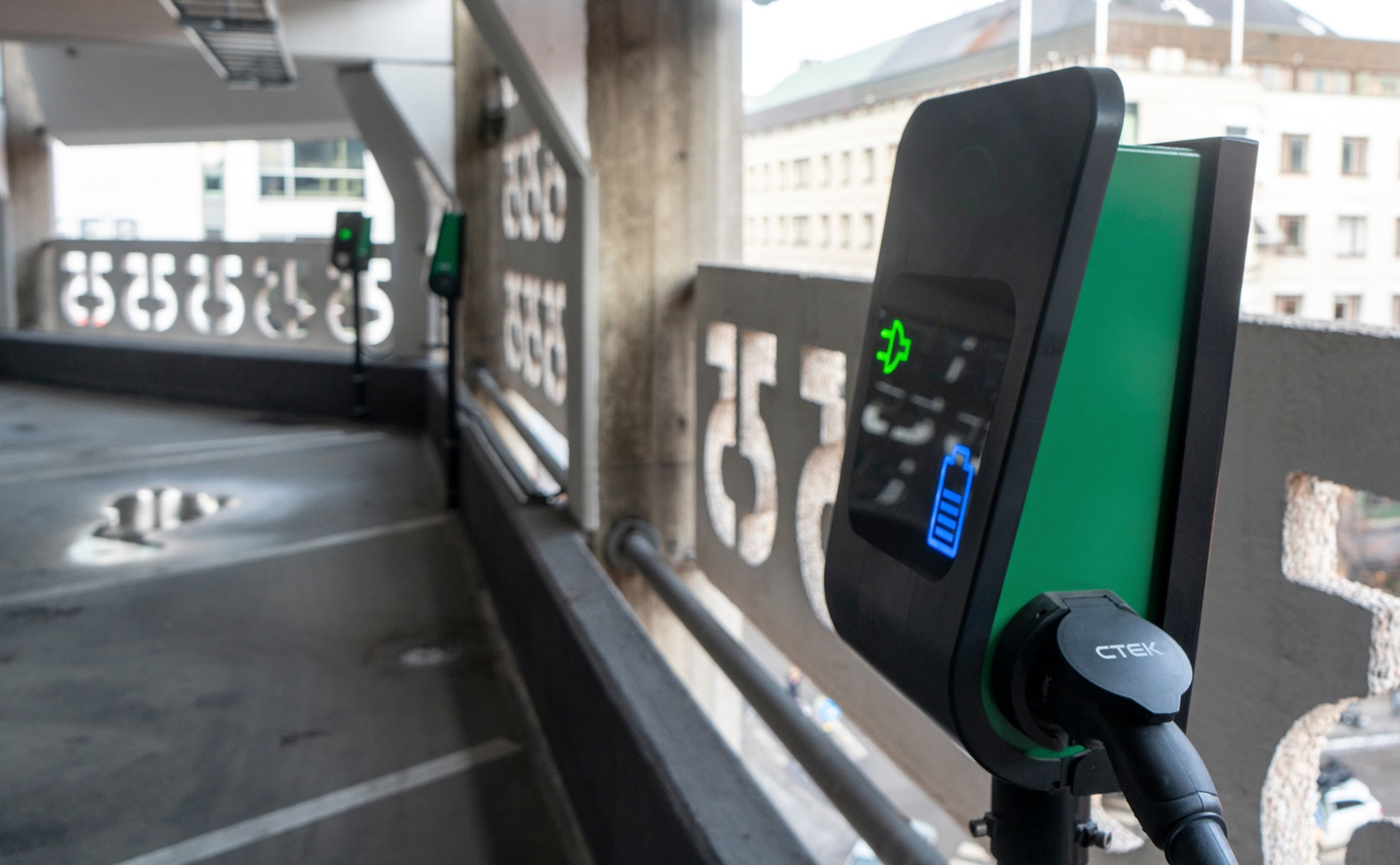5 things you need to know about tax-free charging of electric vehicles at the workplace in Sweden
In Sweden, workplace tax-free charging for electric vehicles (EVs) refers to a tax incentive decided by the Swedish government 31st of May 2023 to encourage the adoption of electric vehicles and support the development of charging infrastructure. This policy change will have a significant impact on the transition to electric vehicles, as it would provide economic benefits for employees, reduce CO2 emissions, and make electric cars even more popular.
1. Tax Exemption
The decision is a temporary tax exemption for the benefit of electricity for charging certain vehicles. Provided that charging takes place at a charging point, or an electrical outlet provided by the employer in connection with the workplace, it will be possible to charge passenger cars, light trucks, motorcycles, mopeds and bicycles without the employee being subject to preferential taxation for electricity consumption.
The decision aims to facilitate the transition to a fossil-free vehicle fleet and favor work trips with rechargeable vehicles over other less sustainable alternatives. The bill is also expected to reduce the administrative burden for both employers and employees that accounting for this benefit is currently associated with.
2. Charging Infrastructure
Employers can install charging stations or allocate charging spots specifically for EVs in their workplace premises. These charging facilities enable employees to conveniently charge their electric vehicles while at work, ensuring they have sufficient range for their daily commute.
Removing taxes on charging electric cars at work will also lead to an increase in sales of charging boxes to property owners. As more people switch to electric cars, the demand for charging stations will increase, which would provide an opportunity for property owners to install charging stations for their tenants. This would be a win-win situation for both property owners and tenants, as it would provide a valuable service for tenants and a new potential revenue stream for property owners.
3. Tax Benefits for Employees
For employees, the tax-free charging at the workplace means they do not have to pay tax on the value of the electricity used to charge their EVs. This effectively reduces their transportation costs and makes owning an electric vehicle more economically viable. By removing taxes on charging at work, employees would be able to save money on fuel costs, making electric cars more accessible to a wider range of people.
4. Employer's Responsibility
Employers who offer tax-free workplace charging need to ensure that the charging infrastructure meets certain requirements, such as providing standard charging connectors compatible with most electric vehicles. Additionally, employers must keep records of the electricity consumed for charging purposes to comply with tax regulations.
5. Environmental Benefits
The workplace tax-free charging initiative aims to promote the transition to electric vehicles, which helps reduce greenhouse gas emissions and air pollution. By supporting the use of electric vehicles through tax incentives, the Swedish government encourages sustainable transportation alternatives.
Sweden is among the countries that have set ambitious goals of phasing out fossil fuel cars by 2030, this move of removing taxes on charging electric cars at work would be a timely step in the right direction in achieving this goal.
The temporary changes entail amendments to the Income Tax Act (1999:1229) and is going to enter into force on 1 July 2023 and apply to benefits provided after the entry into force. The proposition will expire at the end of June 2026.
In a recent YouGov survey conducted by CTEK 2023 is workplace charging high on the agenda. 27% of the EV drivers said they currently charge their EV at the workplace and 25% said that the workplace is their preferred place of charging. When we asked the non-EV drivers what would make them more likely to buy an EV, 48% said that it would be more likely if they had charging options at their workplace.

